Concentration is fundamental to how well you manage your day. If you're unable to concentrate, then doing a particular task will result in getting little or nothing done. Have you ever found yourself on rainy Winter's day staring out the window and daydreaming about sitting on a beach in the summertime while the clock ticks down on an urgent deadline? Or have you tried to start that difficult task, but you've put it off and decided to work on something easier or not work on it at all? This is a lack of focus we all have experienced at some time. But its impact on your anxiety and stress levels increase since you're creating more pressure on yourself because you now have less time to work on that difficult task.
Signs and Reasons You Lack Concentration
There are multiple signs that your concentration and levels of focus are low. If you struggle to recall recent events because your short term memory isn't great, then you can't relax, and you'll always lose things. You may
struggle to make decisions and lack energy, and you're continually making mistakes or unable to finish the tasks you've been given. Sleep, diet, anxiety, stress, and even being hungry are just a few reasons why you can't focus. But the good news is that there are many ways to improve your levels of focus. These are the things you can do if you can't focus.
20 Ways to Improve Your Focus
So how to fix your lack of focus? Here're 20 effective ways to try:
1. Break Your Day Into 30-Minute Slots
Breaking your time into smaller, more focused slots helps you maintain your focus for longer. If you have a big task ahead of you, it’s hard not to procrastinate as it can be overwhelming. By breaking down your efforts into smaller 30-minutes slots, you’re making a little promise to yourself that no matter what, you’re going to only work on this task and nothing else during this time. This approach not only breaks your day into manageable chunks but it also reduces the work needed on more significant tasks. Plan a few minutes of breaks between each slot or on the hour depending on if you’re deep in the flow or if you need a few minutes before you go again.
2. Use Timers
Using timers to help you stay focused is an effortless way to manage your time. Once you’ve decided on the task you want to work on, set a timer for how long you want to work on that task. If the task is large, then don’t set a timer that lasts the whole morning since this is too long for you to be entirely focused without being distracted. Break the time slots into smaller periods. Click start on the timer when you’re ready to go, but don’t stop until that timer ends. You can use the timer on your phone or remove as many distractions as possible. Set a timer in your browser; search for "timer" in Google, and one will appear.
3. Create a Personal Parking Lot
One of the advantages of being intensely focused is that your brain can get really creative, so new ideas, thoughts, and actions pop into it. Although this is great, it can harm your focus for the current task you’re working on. You don’t want to stop these creative thoughts, so to prevent you from starting to multi-task and leave this deeply focused mindset, have a notepad and pen next to you at all times. As soon as a thought or action that isn’t related to the task in hand pops into your mind, write it down. Nothing detailed - just one or two words max, so when you can go back to it later, it’s enough for you to remember why you added it. This isn’t limited to creative thoughts and actions. It could be things like “Order the party balloons", "Wash the car tomorrow", etc. It includes anything you know you have to do but you don’t want to forget at the moment.
4. Take Control of Your Day
During a busy day at work, many distractions can pull you away from the essential tasks. These could be email notifications, Slack messages, a phone call, or colleagues chatting around the office. In a busy work environment, it’s hard to know what’s urgent versus important, so you can easily get diverted to a request in email or feeling like your email is building up, so you then spend time responding to emails. This approach doesn't focus on what’s truly important and what needs to be answered urgently. To help take back control, you need to plan out your day in a structured way. Start by prioritizing what you need to work on that day - things that are urgent and important Then, break these tasks into work segments throughout the working day. These segments can also include when you look at your inbox, Slack, etc. Therefore, you’re controlling your day versus the tools controlling you.
5. Just Sleep More
You can practice all the focus techniques in the world, but if you’re not getting enough sleep, then your ability to remain focused will never improve. It’s often tempting to work late when you’re busy and in some cases, this is necessary. Recognize that the later you work and the less sleep you have, the longer it’s going to take for you to complete the task as your ability to remain focused will diminish. Prioritize sleep over everything else as this is the time for your body and mind to recover. The higher the quality of your sleep, the greater your focus will be.
6. Stop Multitasking
Multitasking is an approach that sounds very appealing, but in reality, it often results in starting lots of tasks but finishing none of them. When working, the temptation to multitask increases as you jump from email to Slack and back to the presentation you’re working on. Working this way, you’re never fully present in any of them as you’re always thinking about where to move next. To increase the quality of your work, dedicate time to one thing, and do that one thing well before you move on. By doing this, you’ll find it easier to maintain your focus since you’ve given yourself the time to focus on that one thing only. Focusing on a single task isn’t just working on a single report or document; it can also be reviewing and replying to emails as long as that is all you’re doing. Find that one thing, focus, and get it done. In the long term, you get more done, and the work you’ll produce will be of higher quality.
7. Caffeine Works but Don't Rely on It
Caffeine consumption is shown to improve memory and cognitive function. One study by the Department of Psychiatry and Clinical Psychobiology at the University of Barcelona found that caffeinated drinks, when taken with glucose, actually improves cognitive function as we age when it comes to attention and memory.((BMED Report:
Combined Consumption Of Caffeine And Glucose Improves The Efficiency Of Brain Activity)) So caffeine is excellent if you can't focus, but if you drink too much of it and too late in the day, it can impact your sleep and increase anxiety. Less sleep decreases your ability to focus, and if you’re already stressed, the adrenaline spikes it produces can have the opposite effect you’re after. So, drink caffeine in moderation, and don’t rely on it solely as your way of keeping focus.
8. Take a Walk
Talking a walk during a particularly busy time may seem counterproductive as you may feel that you don’t have time for it. However, giving your mind a rest and a bit of a reset can improve your productivity and your work performance. Research published in the International Journal of Advances in Chemical Engineering and Biological Sciences states that some exposure to daylight enhances your attention, as well as your work performance.((International Journal of Advances in Chemical Engineering and Biological Sciences:
Natural Light and Productivity: Analyzing the Impacts of Daylighting on Students’ and Workers’ Health and Alertness)) So, getting some sunlight and combining that with a short walk can improve your performance and it’s good for you.
9. Drink More of the Good Stuff
When you’re really busy, it’s easy to forget to drink water, especially when you’re on a roll with a particular piece of work. Drinking water though is vital to maintaining focus because your brain needs it. Your brain is made up of 75% water, but it doesn’t store any of that, so it needs a constant flow to be able to carry out every conscious function, including your memory and the ability to concentrate. A study by the University of Westminster found that drinking just 300ml of water can increase your attention by 20%!((Oxbridge Essays:
How drinking water increases your concentration)) That's a huge increase, so make sure you always have a bottle of water alongside you while you work.
10. Remove Distractions
We have so many distractions around us, and many of these, like mobile phones, are so ingrained in our lives that they’re almost part of us. If you can't focus, recognizing the
distractions around you can improve your concentration. For example, a clean desk and working space reduce the temptation to stop and tidy up. A tidy workspace also helps you relax because there is less to think about when working. Turn off all notifications on your mobile and laptop while working, either in short bursts or longer ones if you can. This includes the badge on the app showing how many unread messages you have. Close down any applications on your laptop you’re not using, and go full screen with the one you’re working on to minimize all distractions. Have a clean desktop and only one or two tabs open if you’re working in your browser. This is the same as having a clean working environment; it keeps you focused on the task at hand.
11. Don’t Read the News!
“Don’t read the news" is an attention-grabbing headline, but what it means is don’t read it before you’re about to work on a task that requires you to have deep focus. The news is typically a pretty depressing read, so why lump that on your brain before you begin? Creating additional worry isn’t going to help your focus. If you can't focus in the first place, this will only worsen it. So, if you do love to read the news, then reward yourself with a break once you’ve completed the task at hand.
12. Meditate for Greater Focus
Our minds have between 60,000 and 80,000 thoughts per day or 2500 to 3300 per hour. So, at times, you can understand why it’s hard to focus. Many times during the day our minds are lost in thought making in our ability to focus even harder.
Meditation helps you reduce the continuous "what might have been" or "what will happen" thoughts. With regular practice, it can improve your concentration levels and reduce stress and anxiety, allowing you to focus for longer.
13. Listen to Music That Match Your Mood and Work
Music can have a positive effect on your concentration levels if you find the right type of music to listen to. Music is also a great way to remove distractions around you like noisy work colleagues. Depending on your preference and mood, music can help you relax if you’re working on a particularly stressful task or help you stay focused for long periods.((North Central University:
Can Music Help You Study and Focus?)) Pre-prepare some playlists that you can access when you need them to match your mood and work type.
14. Eat the Frog
"Eat the Frog" describes doing the hardest task first and by doing it, everything is going to easier after that.((Brian Tracy International:
Eat That Frog: Brian Tracy Explains the Truth About Frogs)) By regularly tackling the hardest task first, it can become addictive as your productivity and confidence will go through the roof. By merely doing harder tasks, you force yourself to learn faster. So, not only you will improve, but those around you will benefit as well.
15. Reward Yourself
We’ve all heard of the carrot on the stick to keep the donkey moving. An incentive to stay motivated and focused no matter how small the temptation gives you a positive mindset when trying to stay focused. This is because you know you’ll not only finish the task, but you’ll also get your reward. Balance the reward with the difficulty and size of the task. For example, consider a tough task that will take you 2 hours to finish. You could give yourself the reward of switching off work entirely for 20 minutes and having a slice of cake. Or consider a longer, more demanding project you’re trying to finish. Once you complete it, you can buy yourself that new gadget you always wanted. Write these rewards down and put them somewhere visible to remind you to stay focused. A Post-It on your laptop or desk, or place it on something you may be distracted by like your mobile or fridge.
16. Break the Task Down
When starting a big task, it can often feel overwhelming, which results in you looking for anything to do other than this task. You can put it off, but all this does is make it harder to complete as you have less time to do it, and your anxiety and stress levels increase. It’s always better to start something than to put it off, so begin by breaking the task down into more straightforward, more manageable tasks. You shouldn’t feel bad that you’re doing the easier tasks first as what you’re doing is creating momentum. The momentum tasks start to break down the tougher, more significant overall tasks, making it not look quite so bad as you’re making progress. The momentum you gain then helps you keep your focus as your anxiety decreases due to the progress you’re making.
17. Exercise First
If you can't focus, doing even a small amount of exercise can help as it can get rid of any restlessness you may have, or give you that boost of energy you may need to get going. You don’t have to do a long run or work out to get this impact; it could be some press-ups, star jumps, or anything that will get your heart rate up. If you have a particularly hard task to work on, then this is a great way to get you alert and ready to start working.
18. Ask Yourself: What Will Happen If I Don’t Do These?
Thinking about the negative impacts of what will happen if you don’t work on and complete this task is a great way to force yourself to stay focused. Think about how you’ll feel or how those around you will feel if you put the task off Will your confidence take a hit? Will it delay their work? Will they be frustrated with you? Another approach is to think of the positive things that will result in completing this task. What will it allow you to do when you’ve finished? How will you feel and how will it affect those around you?
19. Collaborate With Someone
Collaboration is a great way to maintain focus for several reasons. The first is by simply working with someone, you’re more likely to work longer and harder yourself. Collaboration helps you focus since you know you’re not alone on this task, making it feel less overwhelming. You can truly immerse yourself in what you need to do, knowing the task is also progressing with your partner. For the moments when you get stuck or are not sure what to do next, collaboration keeps you progressing as you work on the problem together. Working independently in these situations can often result in you stopping completely.
20. Set a Deadline
Setting a deadline can have a massive impact on your concentration. By making this small promise to yourself, you’ve created a target in your head you must meet. When you then have those moments of distraction, that deadline will pop into your head as a reminder for you to stay focused. To increase the impact of setting a deadline, tell a friend or work colleague what your deadline is and what you need to complete it. You’ll have an even greater reason to complete the task in hand because you won’t want to tell that friend you haven’t done it.
The Bottom Line
The ability to focus for great lengths of time can't be fixed in an instant or in a single way. The good news is that there are many things that you can practice that will, over time, allow you to have a deeper focus for extended periods, so your productivity will go through the roof. If you can't focus, you can just do these things to help you. Combine these with great sleep, a good diet, and staying hydrated and before you know it, it will feel like you have more hours in the day than before.
Read These Too If You Can't Focus

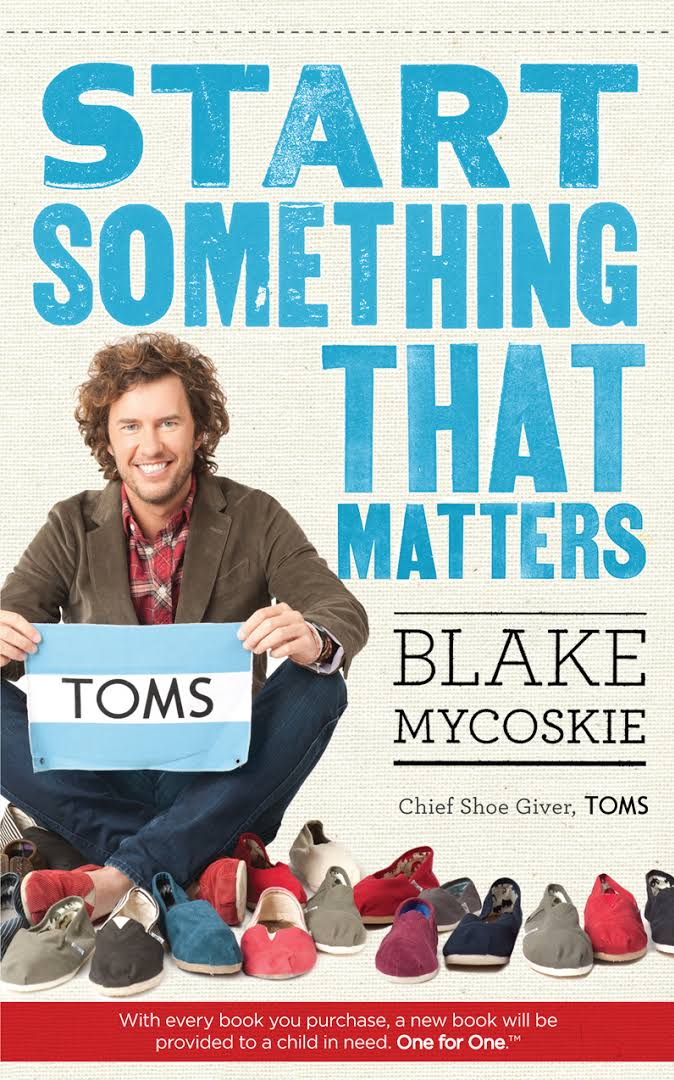 First off, the founder of TOMS shoes isn’t a guy named Tom, but Blake Mycoskie. In his book, Mycoskie details not just how he created a successful company, but one that made a real difference for millions of lives across the world. It’s an inspiring read that’s sure to push entrepreneurs to build something that matters.
First off, the founder of TOMS shoes isn’t a guy named Tom, but Blake Mycoskie. In his book, Mycoskie details not just how he created a successful company, but one that made a real difference for millions of lives across the world. It’s an inspiring read that’s sure to push entrepreneurs to build something that matters.  A true rags-to-riches story that embraces the hustle of the entrepreneurial spirit, Nasty Gal founder Sophia Amoruso’s business memoir is guaranteed to inspire female entrepreneurs for years to come. Amoruso details how her small eBay business grew into a clothing retailer powerhouse that she never could have imagined. From trusting your instincts to knowing when to break the rules, Amoruso provides both witty and useful business insights.
A true rags-to-riches story that embraces the hustle of the entrepreneurial spirit, Nasty Gal founder Sophia Amoruso’s business memoir is guaranteed to inspire female entrepreneurs for years to come. Amoruso details how her small eBay business grew into a clothing retailer powerhouse that she never could have imagined. From trusting your instincts to knowing when to break the rules, Amoruso provides both witty and useful business insights.  A little motivation can go a long way in helping a business idea get off the ground -- even if there’s not a lot of money in the bank. Author Chris Guillebeau lays out a convincing argument that it’s not money that determines a business’s chances of success, but something intangible. Guillebeau presents 50 success stories of entrepreneurs who made an impact, even without huge piles of cash.
A little motivation can go a long way in helping a business idea get off the ground -- even if there’s not a lot of money in the bank. Author Chris Guillebeau lays out a convincing argument that it’s not money that determines a business’s chances of success, but something intangible. Guillebeau presents 50 success stories of entrepreneurs who made an impact, even without huge piles of cash.  Jim Collins takes a look at 28 companies over the last 20 years and what practices they’ve put into place that helped them rise to the top. The book sheds valuable light on management strategy and how to create a business culture that rises above mediocrity and, instead, yields the sort of results that other businesses want to mimic for themselves. In short, if you want your business to go from just being good to being something truly great, this read is a great tool to help.
Jim Collins takes a look at 28 companies over the last 20 years and what practices they’ve put into place that helped them rise to the top. The book sheds valuable light on management strategy and how to create a business culture that rises above mediocrity and, instead, yields the sort of results that other businesses want to mimic for themselves. In short, if you want your business to go from just being good to being something truly great, this read is a great tool to help.  One of the most popular novels with business leaders and CEOs, this one is sure to add fuel to the fire for any entrepreneur. First published in 1943, it continues to inspire entrepreneurs who want to forge their own path. Self-made billionaire Mark Cuban said that it should be “required reading” for every entrepreneur.((Business Insider:
One of the most popular novels with business leaders and CEOs, this one is sure to add fuel to the fire for any entrepreneur. First published in 1943, it continues to inspire entrepreneurs who want to forge their own path. Self-made billionaire Mark Cuban said that it should be “required reading” for every entrepreneur.((Business Insider:  In order for entrepreneurs to find long-standing success, charging full speed ahead with the power of a rhinoceros is essential. Written in 1980, but still incredibly relevant and inspiring today, this book looks at how to go about throwing oneself completely into a goal and the reality of what it ultimately takes to build and create a successful business and career.
In order for entrepreneurs to find long-standing success, charging full speed ahead with the power of a rhinoceros is essential. Written in 1980, but still incredibly relevant and inspiring today, this book looks at how to go about throwing oneself completely into a goal and the reality of what it ultimately takes to build and create a successful business and career. 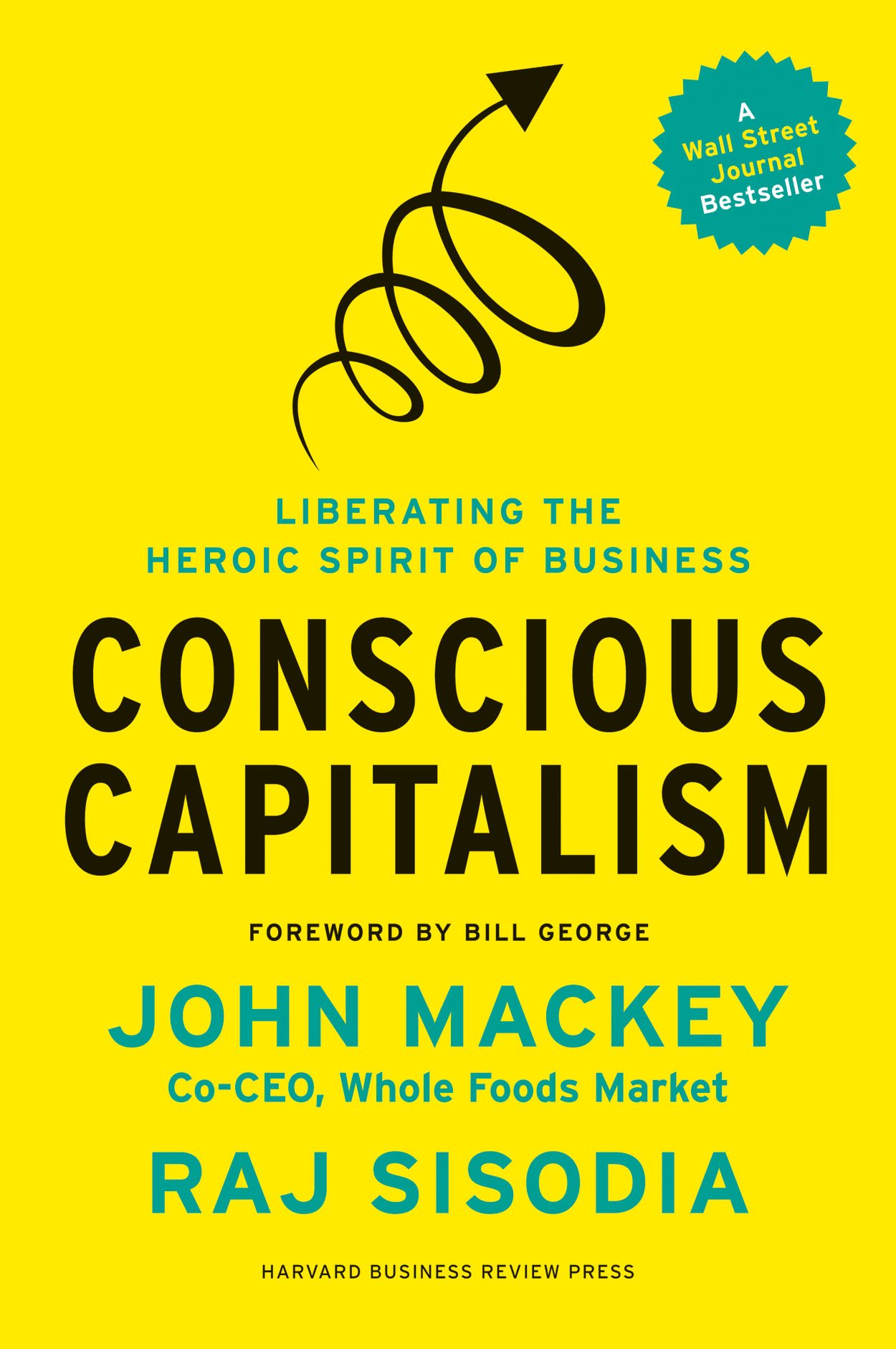 John Macky founded Whole Foods and helped redefine what a grocery store could be. Here, with co-author Raj Sisodia, Mackey looks at how to build a business that aims for a higher purpose than just making a profit. Creating a business where
John Macky founded Whole Foods and helped redefine what a grocery store could be. Here, with co-author Raj Sisodia, Mackey looks at how to build a business that aims for a higher purpose than just making a profit. Creating a business where  Today, Juicy Couture is a million-dollar fashion brand, but it was all started with just $200. Part business memoir and part how-to guide, company founders Pamela Skaist-Levy and Gela Nash-Taylor deliver a highly-entertaining and informative read that reveals the story behind their success and lessons learned along the way.
Today, Juicy Couture is a million-dollar fashion brand, but it was all started with just $200. Part business memoir and part how-to guide, company founders Pamela Skaist-Levy and Gela Nash-Taylor deliver a highly-entertaining and informative read that reveals the story behind their success and lessons learned along the way. 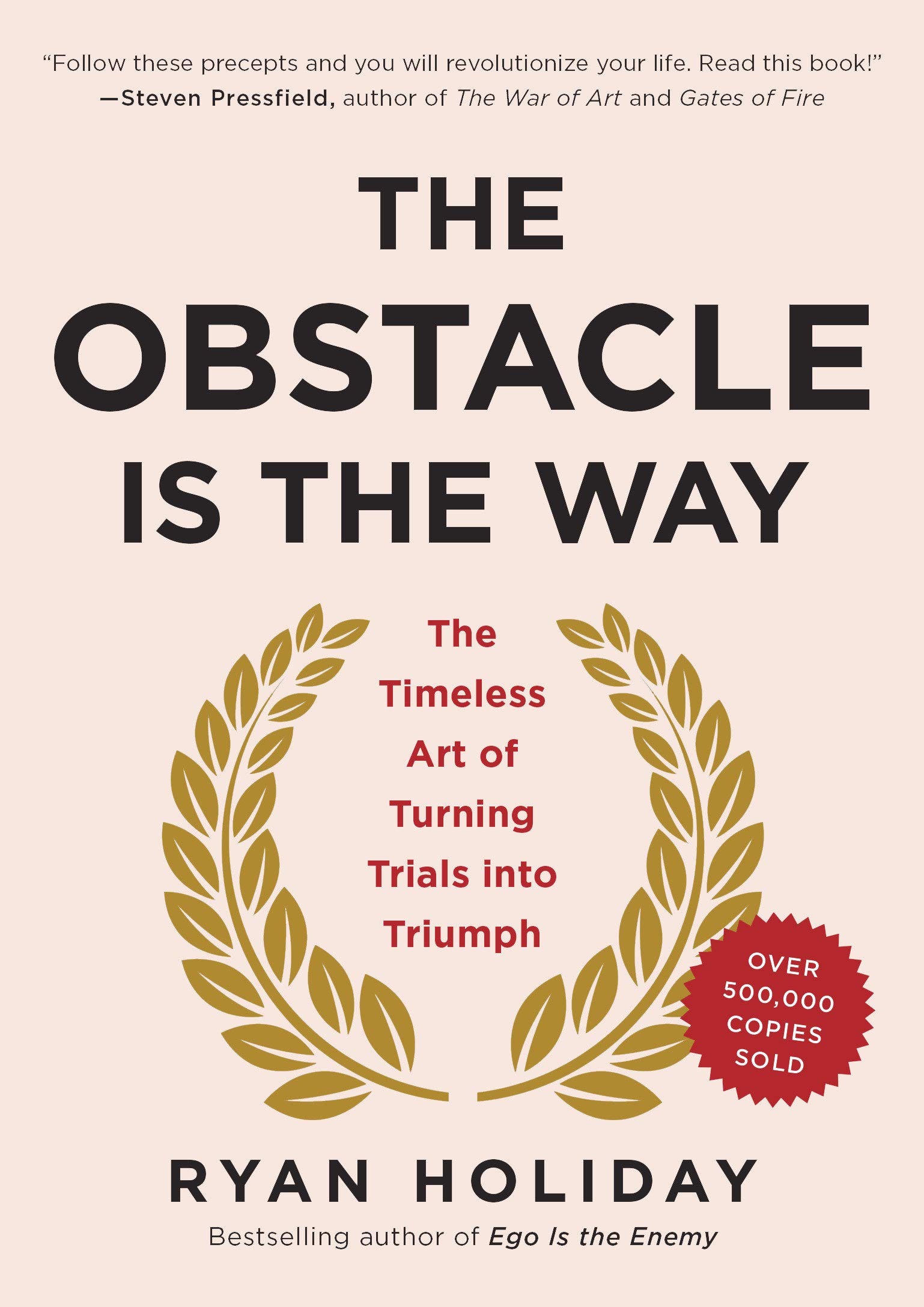 Nobody gets through life without running into obstacles and hardships. While some might falter, others persevere to even greater heights. So what separates these two groups of people? Author Ryan Holiday writes in great detail why the principals of a Roman emperor were so powerful when employed by everyone from John D. Rockefeller and Amelia Earhart to Ulysses S. Grant and Steve Jobs when they were faced with adversity.
Nobody gets through life without running into obstacles and hardships. While some might falter, others persevere to even greater heights. So what separates these two groups of people? Author Ryan Holiday writes in great detail why the principals of a Roman emperor were so powerful when employed by everyone from John D. Rockefeller and Amelia Earhart to Ulysses S. Grant and Steve Jobs when they were faced with adversity.  The Wall Street Journal called this book, which details how the idea of Netflix came to change entertainment as we know it, “an engaging read that will engross any would-be entrepreneur.”((The Wall Street Journal:
The Wall Street Journal called this book, which details how the idea of Netflix came to change entertainment as we know it, “an engaging read that will engross any would-be entrepreneur.”((The Wall Street Journal:  While there’s plenty of business knowledge to be pulled from Gladwell’s book, it’s by no means your standard business how-to book. Gladwell takes a highly fascinating look at everything from the rock stardom of The Beatles to tech giant Bill Gates and how not just the 10,000-hour rule plays a part in success, but how one makes the most of all those hours. No matter what your profession, there are nuggets of insight that all entrepreneurs will find useful within the book’s pages.
While there’s plenty of business knowledge to be pulled from Gladwell’s book, it’s by no means your standard business how-to book. Gladwell takes a highly fascinating look at everything from the rock stardom of The Beatles to tech giant Bill Gates and how not just the 10,000-hour rule plays a part in success, but how one makes the most of all those hours. No matter what your profession, there are nuggets of insight that all entrepreneurs will find useful within the book’s pages.  You’d be hard-pressed not to find this book on a “best of” list for entrepreneurs. It’s a book that every entrepreneur should at least read, if not own. Author Stephen R. Covey lays out a clear pathway for developing the habits that lead to not just success in work, but in creating a life of integrity that makes a lasting impact.
You’d be hard-pressed not to find this book on a “best of” list for entrepreneurs. It’s a book that every entrepreneur should at least read, if not own. Author Stephen R. Covey lays out a clear pathway for developing the habits that lead to not just success in work, but in creating a life of integrity that makes a lasting impact.  Money guru Davey Rasey has built his radio show into a financial advice empire and has put the principles he’s used for doing so into this book. Ramsey lays out not just tips for finding and leading the right people, but how to turn obstacles into advantages as your business grows. In their review, The Simple Dollar called it the “best single book on entrepreneurship” yet.((The Simple Dollar: Review:
Money guru Davey Rasey has built his radio show into a financial advice empire and has put the principles he’s used for doing so into this book. Ramsey lays out not just tips for finding and leading the right people, but how to turn obstacles into advantages as your business grows. In their review, The Simple Dollar called it the “best single book on entrepreneurship” yet.((The Simple Dollar: Review: 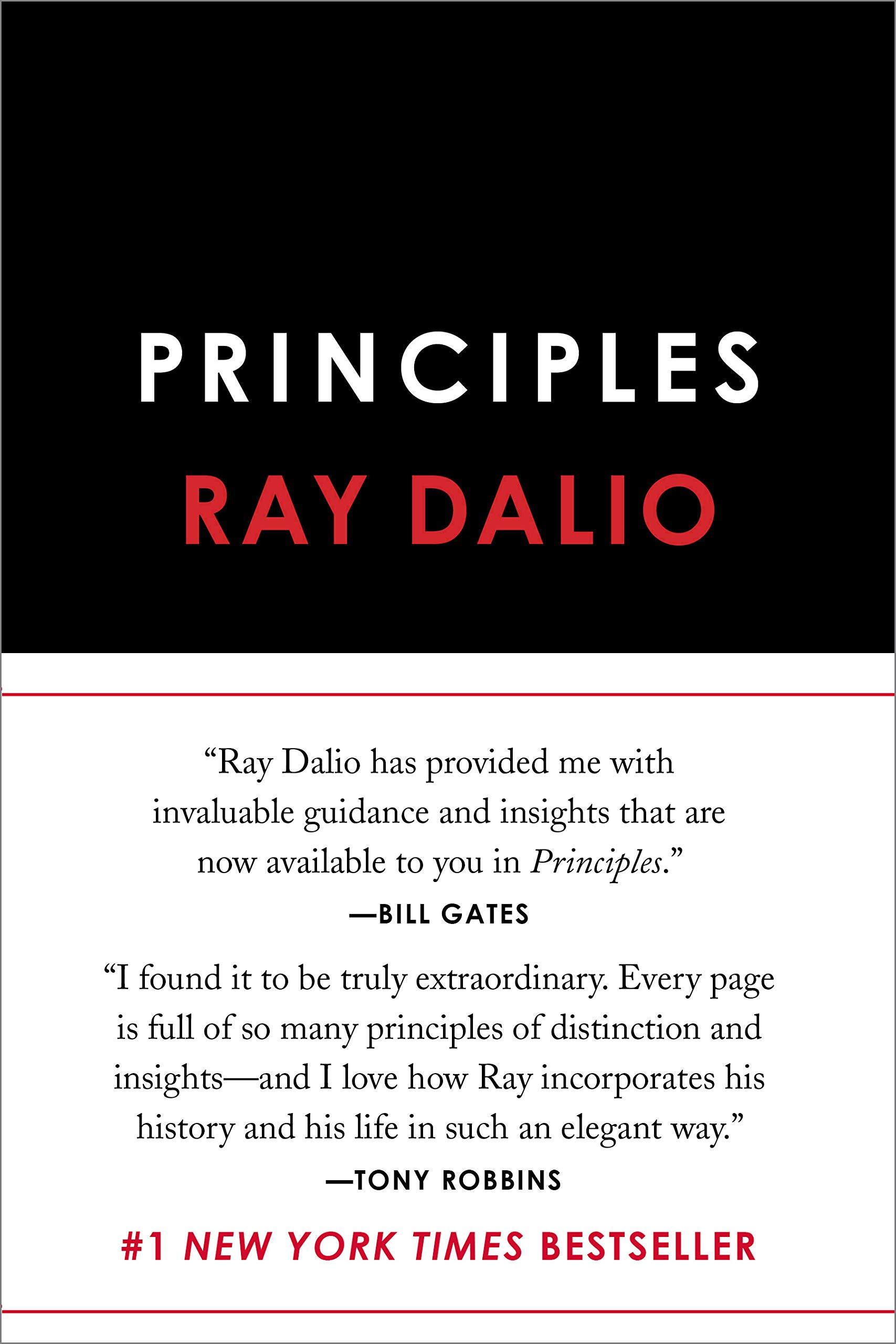 With accolades from everyone from Bill Gates to Tony Robbins, Principles examines the code that guides Ray Dalio’s life and how he founded and grew the investment firm Bridgewater Associates. From goal setting to the importance of transparency and
With accolades from everyone from Bill Gates to Tony Robbins, Principles examines the code that guides Ray Dalio’s life and how he founded and grew the investment firm Bridgewater Associates. From goal setting to the importance of transparency and  Daymond John is, of course, no stranger to fans of the hit entrepreneur pitch TV show Shark Tank. Long before John was investing and mentoring young companies, he was carving out his own path with the clothing brand FUBU. The lessons and advice that John doles out are just as applicable to today’s entrepreneurs as they were in the 1990s when he launched his brand with a $40 budget.
Daymond John is, of course, no stranger to fans of the hit entrepreneur pitch TV show Shark Tank. Long before John was investing and mentoring young companies, he was carving out his own path with the clothing brand FUBU. The lessons and advice that John doles out are just as applicable to today’s entrepreneurs as they were in the 1990s when he launched his brand with a $40 budget.  Even if you’re not technically in sales, having
Even if you’re not technically in sales, having  An inspiring read for anybody with an entrepreneurial spirit, this book makes Thiel's case for why now is the best time to be an entrepreneur and how to think like an innovator. The book has been praised for offering both fresh and inspiring ideas by a who’s who of the tech world, including Mark Zuckerberg and Elon Musk.
An inspiring read for anybody with an entrepreneurial spirit, this book makes Thiel's case for why now is the best time to be an entrepreneur and how to think like an innovator. The book has been praised for offering both fresh and inspiring ideas by a who’s who of the tech world, including Mark Zuckerberg and Elon Musk.  Good habits will help you in business and life, while bad habits can unravel everything you’ve worked for. Good habit formation isn’t easy, but author James Clear makes his case for why it’s so essential and provides a proven formula for putting good habits in place while identifying and dropping the bad ones.
Good habits will help you in business and life, while bad habits can unravel everything you’ve worked for. Good habit formation isn’t easy, but author James Clear makes his case for why it’s so essential and provides a proven formula for putting good habits in place while identifying and dropping the bad ones. 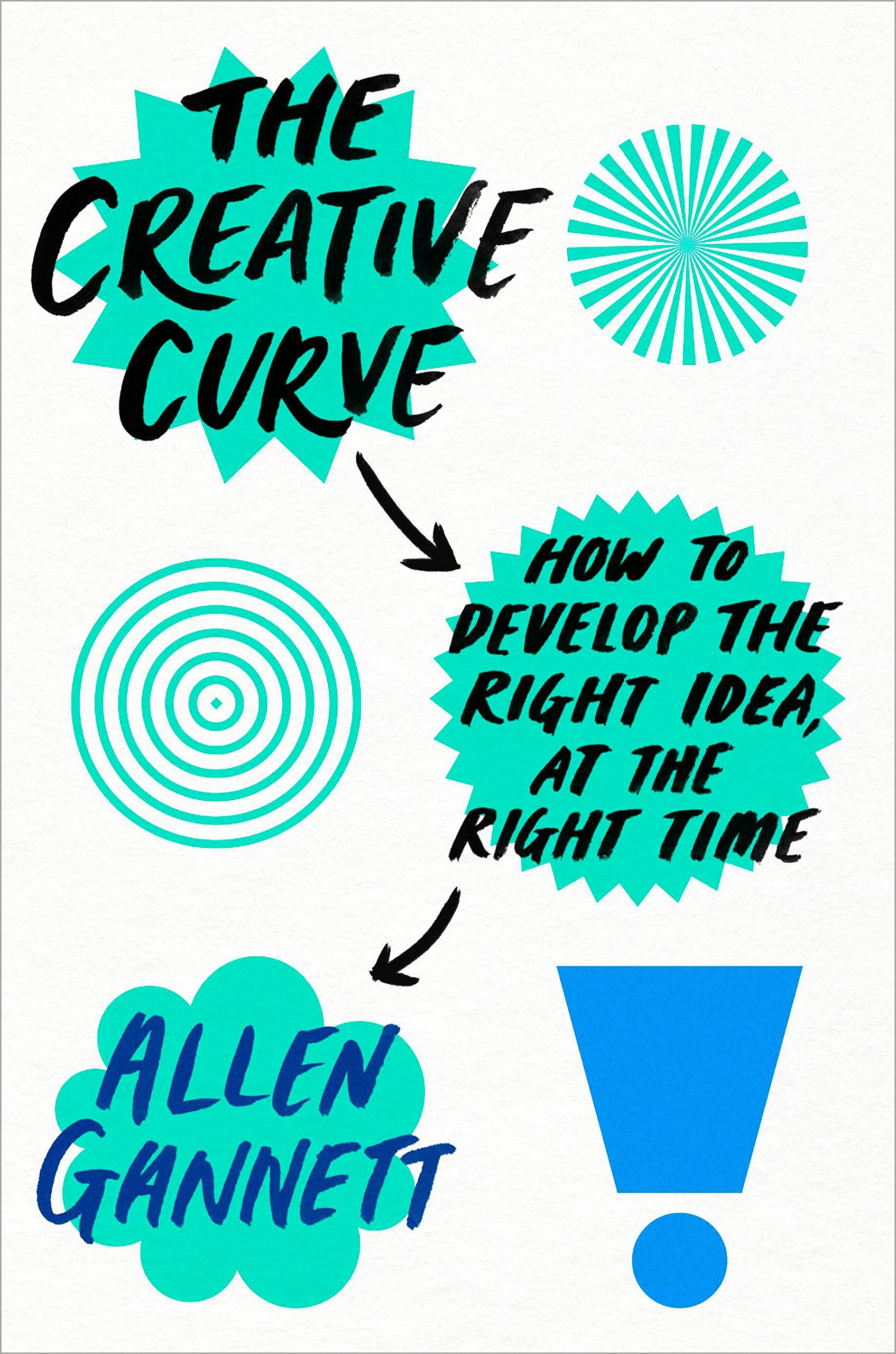 Creativity is key for entrepreneurs, but not everyone is creative, or more accurately, not everyone thinks they’re creative. Allen Gannett believes that everyone can learn to harness the creative spark inside them; it’s all about applying the laws of the creative curve. Gannett combines both real-life stories and how-to advice for entrepreneurs to harness their creative spirit.
Creativity is key for entrepreneurs, but not everyone is creative, or more accurately, not everyone thinks they’re creative. Allen Gannett believes that everyone can learn to harness the creative spark inside them; it’s all about applying the laws of the creative curve. Gannett combines both real-life stories and how-to advice for entrepreneurs to harness their creative spirit.  Failure is something that every successful entrepreneur is familiar with, and it’s how they learn from it that ultimately leads to fruitful endeavors. Lisa Pierce and Hilary Beard lay out a personal story that details not just the setbacks and obstacles she once faced as a black woman who was saddled with debt, but how she learned to tackle each problem and build the L.E. Beauty company. For those who may be wondering if it’s possible to leave behind the 9-to-5 grind, Pierce and Beard proves that it’s doable and worthwhile.
Failure is something that every successful entrepreneur is familiar with, and it’s how they learn from it that ultimately leads to fruitful endeavors. Lisa Pierce and Hilary Beard lay out a personal story that details not just the setbacks and obstacles she once faced as a black woman who was saddled with debt, but how she learned to tackle each problem and build the L.E. Beauty company. For those who may be wondering if it’s possible to leave behind the 9-to-5 grind, Pierce and Beard proves that it’s doable and worthwhile.  According to author Jon Acuff, there are only two paths in life: average and awesome. The average path, of course, is the one of least resistance, but less rewarding. Staying on the awesome path is easier said than done, but Acuff provides a map for how to start down this path, push past the problems that arise, and ultimately create work that matters.
According to author Jon Acuff, there are only two paths in life: average and awesome. The average path, of course, is the one of least resistance, but less rewarding. Staying on the awesome path is easier said than done, but Acuff provides a map for how to start down this path, push past the problems that arise, and ultimately create work that matters.  Technology has provided a natural opportunity for legal industry entrepreneurs, and a huge part of that is recognizing how to build good products and services. The Lean Startup does just that, and author Eric Ries provides sound advice on vetting new ideas and products when starting a new company. Entrepreneurs will find Ries’s methods and examples both insightful and, most importantly, practical.
Technology has provided a natural opportunity for legal industry entrepreneurs, and a huge part of that is recognizing how to build good products and services. The Lean Startup does just that, and author Eric Ries provides sound advice on vetting new ideas and products when starting a new company. Entrepreneurs will find Ries’s methods and examples both insightful and, most importantly, practical.  Bringing about real change is a difficult thing to make happen, and according to the book’s authors, three things must occur: direction, motivation, and shape. Obviously, there’s more to it than that and the Heaths provide plenty of real examples from the business world such as the successful 1 percent milk campaign. There’s a certain psychology to creating change, and Switch helps uncover some of that mystery.
Bringing about real change is a difficult thing to make happen, and according to the book’s authors, three things must occur: direction, motivation, and shape. Obviously, there’s more to it than that and the Heaths provide plenty of real examples from the business world such as the successful 1 percent milk campaign. There’s a certain psychology to creating change, and Switch helps uncover some of that mystery.  Generosity and business domination aren’t two things that often go hand-in-hand, but The Go-Giver highlights why the old proverb "give and you shall receive” is so meaningful for entrepreneurs. Written as a novel, the book functions as a blueprint for how to create a meaningful business that adds real value to all the lives it impacts.
Generosity and business domination aren’t two things that often go hand-in-hand, but The Go-Giver highlights why the old proverb "give and you shall receive” is so meaningful for entrepreneurs. Written as a novel, the book functions as a blueprint for how to create a meaningful business that adds real value to all the lives it impacts.  It goes without saying that social media plays a huge role in the brand identity of today’s businesses. Gary Vaynerchuk offers entrepreneurs evidence-based examples of how-to and how-not-to use social media platforms to build a framework that creates industry influence. While the world of social media is constantly changing, Vaynerchuk manages to create an effective guide that applies to social media platforms both big and small.
It goes without saying that social media plays a huge role in the brand identity of today’s businesses. Gary Vaynerchuk offers entrepreneurs evidence-based examples of how-to and how-not-to use social media platforms to build a framework that creates industry influence. While the world of social media is constantly changing, Vaynerchuk manages to create an effective guide that applies to social media platforms both big and small. 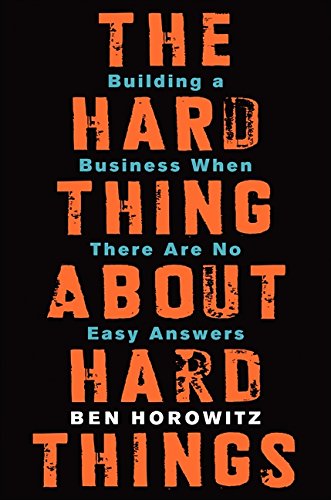 With a four-star rating and over 48,000 reviews on Good Reads, a lot of people are finding real value in Ben Horowitz’s helpful, but brutally honest advice. A must-read for anyone who’s just earned their MBA, Horowitz offers no-nonsense advice for the challenges that you’ll face when starting a business and how to push past them.
With a four-star rating and over 48,000 reviews on Good Reads, a lot of people are finding real value in Ben Horowitz’s helpful, but brutally honest advice. A must-read for anyone who’s just earned their MBA, Horowitz offers no-nonsense advice for the challenges that you’ll face when starting a business and how to push past them.  One of the best business books out there for new entrepreneurs, this one provides readers with a guide of mistakes that could threaten their business. The most impactful leaders learn to avoid mistakes by watching others, and this read aims to help readers see those hazards and pitfalls coming from a mile away and how to best avoid them.
One of the best business books out there for new entrepreneurs, this one provides readers with a guide of mistakes that could threaten their business. The most impactful leaders learn to avoid mistakes by watching others, and this read aims to help readers see those hazards and pitfalls coming from a mile away and how to best avoid them.  Occasionally screwing up on the job is a part of life, and nobody’s immune to it, whether they’re a CEO, professional athlete, or world-famous rock star. Mistakes I Made at Work isn’t an entrepreneur’s personal memoir, but a collection of the tough lessons learned from a variety of very successful women. Spanning the tech sector to professional sports, author Jessica Bacal’s interviews provide real insight and valuable lessons that the next generation of successful women can surely find real value in.
Occasionally screwing up on the job is a part of life, and nobody’s immune to it, whether they’re a CEO, professional athlete, or world-famous rock star. Mistakes I Made at Work isn’t an entrepreneur’s personal memoir, but a collection of the tough lessons learned from a variety of very successful women. Spanning the tech sector to professional sports, author Jessica Bacal’s interviews provide real insight and valuable lessons that the next generation of successful women can surely find real value in.